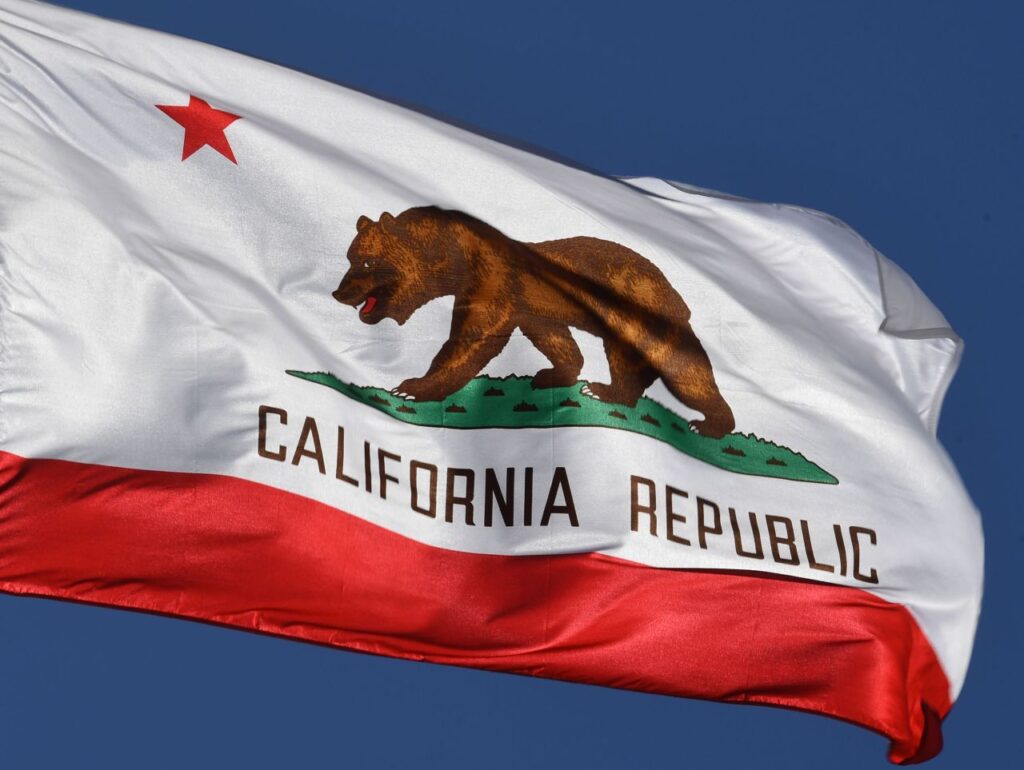
The California flag flies outside City Hall in Los Angeles, California on January 27, 2017.
California lawmakers are reintroducing a previously failed universal health care bill.
The latest version of the bill, officially known as AB 2200, would establish a single-payer state-run health system framework called CalCare to manage health care costs for all Californians.
“This bill would, among other things, provide that CalCare would cover a wide range of medical benefits and other services, and would cover other existing federal and state prescribed medical benefits, including the federal Children's Health Insurance Program, Medi-Cal. and would incorporate standards for “regional centers for the developmentally disabled, Knox-Keene, and ancillary medical or social services covered by federal Medicare,” according to the text of the bill.
While the idea sounds good on paper, previous bills have met with resistance, primarily due to the high price tag. Legislative analysts had previously estimated that the program could cost $494 billion to $552 billion to fund.
High pricing was one reason a similar CalCare bill didn't garner enough support to pass in 2022.
Despite previous concerns, the latest bill could gain more support because there are many single-payer-friendly leaders in the state Legislature, according to Politico. Still, not all issues have been resolved, and the bill will likely struggle this time around due to the statewide budget deficit and the bill's lack of funding structure.
Still, AB 2200's supporters remain hopeful.
“As we get through the pandemic, we see that people have a desire to have more access to health care. This will change a lot of people's minds and stop people from suffering and dying because they have to pay to go to the doctor. “I think more and more people are focusing on making sure this doesn't happen,” said Rep. Liz Ortega, a Democrat from Hayward and one of 20 Republicans. — the bill's authors told Politico.
Ortega spoke Wednesday afternoon at a gathering of health care workers and other advocates in Sacramento ahead of a Congressional Health Committee hearing on the bill.
Despite its popularity in other countries and among progressive lawmakers, no state has adopted single-payer health care.
The bill must pass the state Legislature and be signed by Gov. Gavin Newsom to become law.


